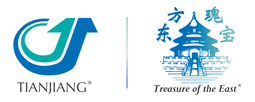Honoring Indigenous Herbal Medicine
The holiday long-recognized as Columbus Day is formally celebrated as Indigenous Peoples' Day by Alabama, Alaska, Hawaii, Iowa, Louisiana, Maine, Michigan, Minnesota, New Mexico, North Carolina, Oklahoma, Oregon, South Dakota, Virginia, Wisconsin, Washington DC, and Indigenous communities all across the US.
In honor of the occasion, we want to recognize the substantial herbal medicine tradition that originated in pre-colonial America. Herbs like Echinacea (Zhi Zhu Hua), St John’s Wort (Guan Ye Lian Qiao), and American Ginseng (Xi Yang Shen) were used in a complex and evidence-based medicine system that developed similarly to TCM and was used all over North America.
 L-R: Echinacea, St. John's Wort, Yarrow; images courtesy of Unsplash
L-R: Echinacea, St. John's Wort, Yarrow; images courtesy of Unsplash
According to a paper in the American Journal of Clinical Nutrition by A.T. Borchers et al.(1), 7 of the top 10 most common dietary supplements sold in the United States at the time of publishing were used by Indigenous Americans for their medical properties.
| Common name (Latin names) | Native American peoples who used the botanical | Native American indications | Marketed indications |
|---|---|---|---|
| Ginkgo (Ginkgo biloba) | None | Not used | Memory and circulation |
| Ginseng (Panax quinquefolius, Panax ginseng, Eleutherococcus senticosus) | (P. quinquefolius only) Cherokee, Creek, Delaware, Fox, Houma, Iroquois, Menominee, Mohegan, Pawnee, Penobscot, Potawatomi | Tonic, expectorant; for fevers, tuberculosis, asthma, and rheumatism; of mental powers | Immune function and stress as a strengthener |
| Garlic (Allium sativum) | Cherokee diuretic, expectorant, mild cathartic; for scurvy, asthma, and prevention of worms | Stimulant, carminative, and cholesterol | Cardiovascular health lowering |
| Echinacea (Echinacea purpurea, Echinacea angustifolia, Echinacea pallida) | Cheyenne, Choctaw, Dakota, Delaware, Fox Kiowa, Ponca, Sioux, Winnebago | Pain relief; for coughs and sore throats, fevers, smallpox, mumps, measles, rheumatism, and arthritis; antidote for poisons and venoms | Immune function |
| Goldenseal (Hydrastis canadensis) | Cherokee, Iroquois, Micmac | Tonic; for fever, whooping cough, and pneumonia | Immune function |
| St John's wort (Hypericum perforatum) | Cherokee, Iroquois, Montagnais | For fever, coughs, and bowel complaints | Antidepressant |
| Saw palmetto (Serenoa repens) | None | Not used | Prostate health |
| Grape seed extract (Vitis vinifera) | None | Not used | Antioxidant status |
| Evening primrose (Oenothera biennis) | Cherokee, Iroquois, Ojibwa, Potawatomi | For premenstrual and menstrual pain, obesity, and bowel pains | Antioxidant status; premenstrual and menstrual pain |
| Cranberry (Vaccinium macrocarpon) | Montagnais | For pleurisy | Health of urinary tract |
Table curtesy of A.T. Borchers et al. (1)
Further, research by W. Setzer (2) in the Medicines Open Access Journal, a peer-reviewed periodical covering a number of medical disciplines, Cherokee herbs like Black Cohosh (a relative of Sheng Ma), Blue Skullcap (a relative of Huang Qin), Common Rush (Deng Xin Cao), and Yarrow (Ya Luo) have traditional usages that are backed up by evidence and by chemical analysis.
Sources:
(1) https://academic.oup.com/ajcn/article/72/2/339/4729391
(2) https://www.ncbi.nlm.nih.gov/pmc/articles/PMC6313439



















